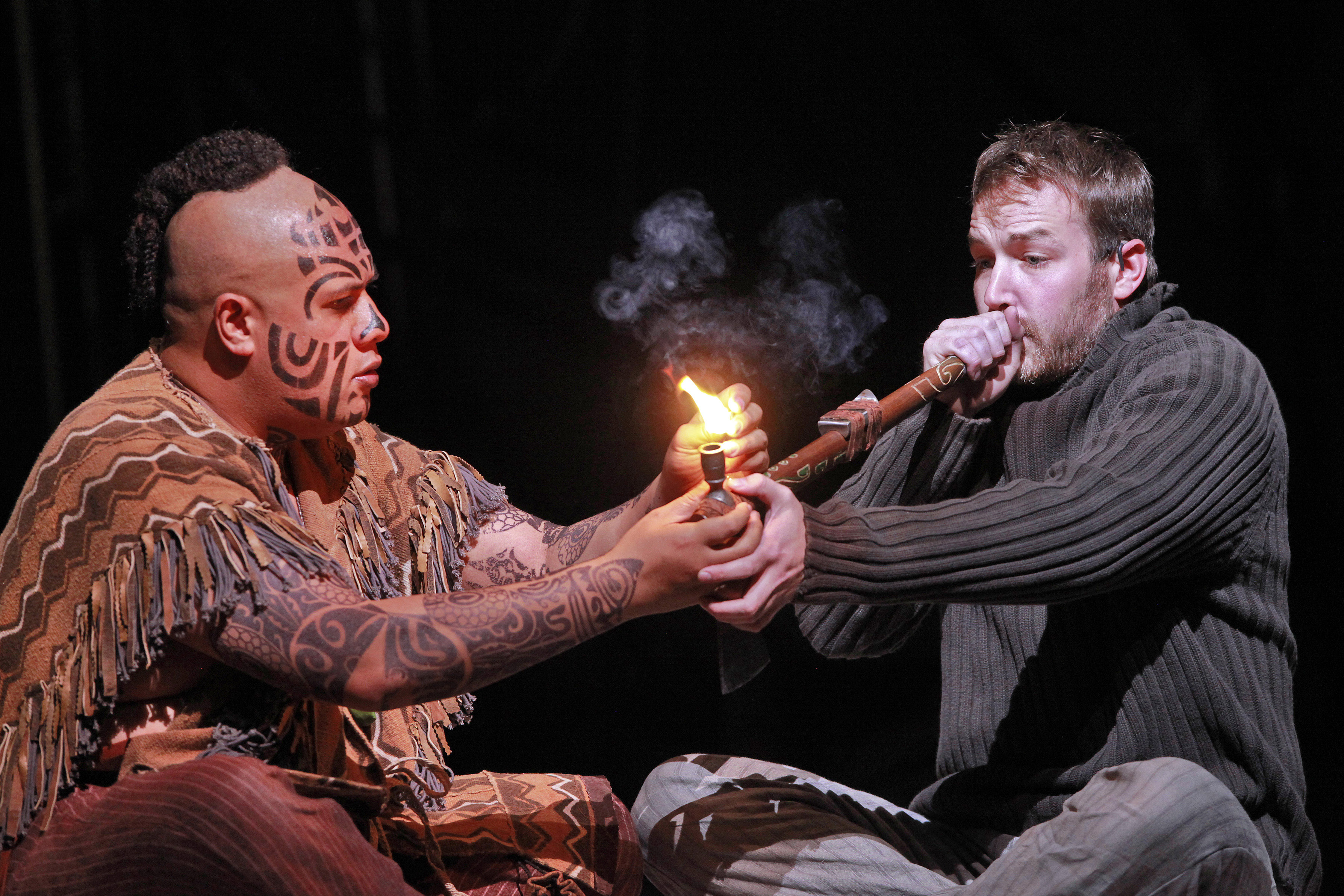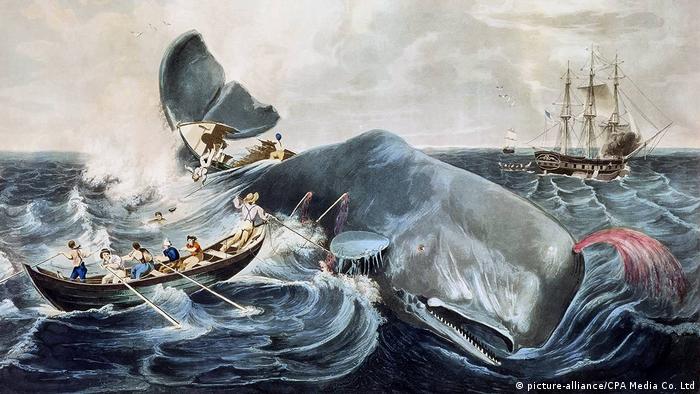
Herman Melville
Are there books which you figure you ought to read because they are classics but will probably never get to? We had a conversation recently about Moby Dick, the "whale of a tale" by Herman Melville which is referred to often in reverential tones but because of its length (135 chapters and epilogue) defeats many an earnest reader, including both of us. We had a handsome copy for years but gave it away before one of our moves.
We decided to listen to it instead, and a fifth of the way through we are amazed by how worthwhile it is, even though the Pequod has just set out to sea. The narrator, Ishmael, and a harpooneer named Queequeg literally become strange bedfellows in the days before they end up as shipmates on the whaling ship. Ishmael is a Caucasian Presbyterian who attempts to understand the unusual ways of Queequeg, a person of colour, who is a former cannibal.

Jonathan Lemalu (Queequeg) and Stephen Costello (Greenhorn)
in SF Opera’s Moby Dick. Photo by Cory Weaver.
Despite the prejudices of the era in which the novel was written and Ishmael's Christian conventions he comes to admire this "savage" who is a Muslim. There is a chapter called The Ramadan in which Queequeg observes the Islamic period of fasting and reflection. Ishmael concludes that even though his new friend is a pagan by conventional Christian standards he has more time for an observant Muslim who lives as Queequeg does than so-called Christians who use religion to create toxic divisions.
Moby Dick was written in 1851 when Meleville was in his early 30's. The novel wasn't popular in the 19th century and was only recognized as a great literary work in the 1920's, decades after the author's death.
Melville's thoughtfulness and generosity of spirit when it comes to another religion, particularly Islam, is remarkably timely in the United States nearly 170 years after Moby Dick was written. This past weekend marked the fifth anniversary of a senseless hate crime, the murder of three young Muslim adults in their home in Raleigh, North Carolina. In the midst of travel bans on Muslims and general suspicions of Muslims because of government policies in the States this chapter should be required reading.
Have you read Moby Dick? Were you aware of the The Ramadan chapter? How old were you when you first became aware of Ramadan? (I was well into my 30's)

Ah, the eternal struggle! Some books loom large in literary history, yet remain dauntingly unread on our shelves. Moby-Dick is certainly one of those—a masterpiece, but also a marathon of dense prose and deep symbolism. It’s fascinating how some books shape culture and conversation even when many of us haven’t tackled every page!
ReplyDeleteMay we find the patience and wisdom to explore knowledge in all forms. And as we seek understanding, let’s also recite Dua e Masura , asking for guidance, clarity, and blessings.